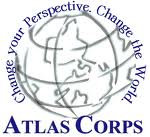- Education Topics
- Achievement Gap
- Alternative Education
- American Education Awards
- Assessment & Evaluation
- Education during COVID-19
- Education Economics
- Education Environment
- Education in the United States during COVID-19
- Education Issues
- Education Policy
- Education Psychology
- Education Scandals and Controversies
- Education Reform
- Education Theory
- Education Worldwide
- Educational Leadership
- Educational Philosophy
- Educational Research
- Educational Technology
- Federal Education Legislation
- Higher Education Worldwide
- Homeless Education
- Homeschooling in the United States
- Migrant Education
- Neglected/Deliquent Students
- Pedagogy
- Sociology of Education
- Special Needs
- National Directories
- After School Programs
- Alternative Schools
- The Arts
- At-Risk Students
- Camps
- Camp Services
- Colleges & Universities
- Counties
- Driving Schools
- Educational Businesses
- Financial Aid
- Higher Education
- International Programs
- Jewish Community Centers
- K-12 Schools
- Language Studies
- Libraries
- Organizations
- Preschools
- Professional Development
- Prom Services
- School Assemblies
- School Districts
- School Field Trips
- School Health
- School Supplies
- School Travel
- School Vendors
- Schools Worldwide
- Special Education
- Special Needs
- Study Abroad
- Teaching Abroad
- Volunteer Programs
- Youth Sports
- For Schools
- Academic Standards
- Assembly Programs
- Blue Ribbon Schools Program
- Educational Accreditation
- Educational Television Channels
- Education in the United States
- History of Education in the United States
- Reading Education in the U.S.
- School Grades
- School Meal Programs
- School Types
- School Uniforms
- Special Education in the United States
- Systems of Formal Education
- U.S. Education Legislation
- For Teachers
- Academic Dishonesty
- Childcare State Licensing Requirements
- Classroom Management
- Education Subjects
- Educational Practices
- Interdisciplinary Teaching
- Job and Interview Tips
- Lesson Plans | Grades
- Professional Development
- State Curriculum Standards
- Substitute Teaching
- Teacher Salary
- Teacher Training Programs
- Teaching Methods
- Training and Certification
- For Students
- Academic Competitions
- Admissions Testing
- At-Risk Students
- Career Planning
- College Admissions
- Drivers License
- Educational Programs
- Educational Television
- High School Dropouts
- Higher Education
- School Health
- Senior Proms
- Sex Education
- Standardized Testing
- Student Financial Aid
- Student Television Stations
- Summer Learning Loss
Atlas Service Corps

Basic Information
Address: Atlas Service Corps, Inc.
1133 19th Street NW, 9th Floor
Washington, DC 20036
Phone Number: +1 (202) 736 5714
Email: apply@atlascorps.org
Director: Scott Beale, CEO
Additional Information
Causes Served: International Development and Service
Clearances Required: No
Background Check: No
Ages for Volunteer: 18+
Minimum Hours Required: 3-5 hours per week, as available
Days of Service: M-F
Mission Statement:
To address critical social issues, Atlas Corps develops leaders, strengthens organizations and promotes innovation through an overseas fellowship of skilled professionals.
Philosophy/Belief Statement:
The Atlas Corps will be a values-based organization creating a strong international network of emerging citizen sector leaders who share a common drive to advance the larger good.
Program History:
Scott Beale is the founder of Atlas Service Corps and an experienced social entrepreneur who has worked in four continents, with citizen, government and business leaders from around the world. Scott founded Atlas Corps in March 2006 to be an innovative, sustainable and scalable way for revolutionizing international volunteerism. In 2007, the organization's pilot year, Atlas brought six dynamic, citizen sector leaders from Colombia and India to Washington, DC. In the last three years, Atlas Corps has facilitated fellowships and placements in host organizations for 22 Fellows, both to the U.S. and from the U.S.
Additional Information:
Atlas Corps facilitates international fellowships for the best of the world's rising leaders. They volunteer at outstanding organizations addressing social issues and are enrolled in an ongoing training program. After 12 or 18 months, they return to their countries to work for at least one year (and usually their entire career) back in the nonprofit sector, sharing new skills, best practices, valuable experiences and a global network of changemakers.
Vision: A truly global nonprofit sector where best practices, talent, and services cross borders with ease to efficiently and effectively serve the needs of the world community through international partnerships and collaboration.




